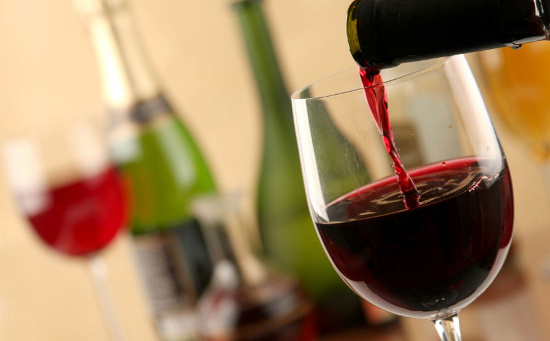Good wine is thanks to ... bacteria
Why is the same material that alcohol here is better than elsewhere? The question is explained by many people but has just come up with a reliable hypothesis and scientific evidence of researchers from Stellenbosh University (South Africa).
According to South African scientists, the taste of wine depends not only on how much alcohol has been used, the type of material used, the technology know-how, but the bacteria in the new wine play a decisive role.
Take grape wine as an example. Each vineyard is a perfect environment for different bacterial populations to proliferate. They live in the covering soil, on vines, on grape bark and during the process of sweet fermented grapes.

They give the wine its characteristic flavor, making wine here is different from elsewhere, even when alcohol is produced in the same region also has different flavors.
Scientists have studied the microbiota in three famous wine growing regions and South Africa's wine production. Each vineyard is cared for by a variety of farming techniques, from traditional to modern techniques, using organic fertilizers and biological measures.
The results show that the fungi that form according to different technologies will differ significantly in the ratio between species and what is surprising is that the combination makes the wine taste from grapes grown on the same land unlike together.
To carefully identify the species and the number of microorganisms, the scientists isolated the DNA of each bacterial population living on the bark of the grapes. They found that vineyards cultivated with biotechnology methods have a richer microbial population than traditional vineyards and create the taste that wine tasting experts value more. .
In addition, scientists are faced with some differences in vineyards planted on the same land because heat and solar radiation have a big impact on the proportion of fungi living on vineyards.
The results of this study can be applied to improve and stabilize the quality of alcohol, to intervene more in traditional technologies to make this wine called 'divine beverage' more and more important . more delicious.
- Doan Ngo Tet festival how to eat wine with good health?
- Red wine is good for lazy people
- Wine is not as good as we think
- Drinking wine and eating kumquat helps prevent tooth decay
- China grows grapes on the universe to make good wines
- Use caution when using fruit soaked wine
- The secret to opening wine without tools you must know!
- Grape juice is as good as red wine
- The way to preserve wine has opened
- Ancient Christian wine factory in Egypt
- Wine and beer are good for bones
- Wine made from ... tomatoes
 Why do potatoes have eyes?
Why do potatoes have eyes? 'Tragedy' the world's largest carnivorous life: Death becomes ... public toilet
'Tragedy' the world's largest carnivorous life: Death becomes ... public toilet Tomatoes were once considered 'poisonous' for 200 years
Tomatoes were once considered 'poisonous' for 200 years Detecting microscopic parasites on human face
Detecting microscopic parasites on human face